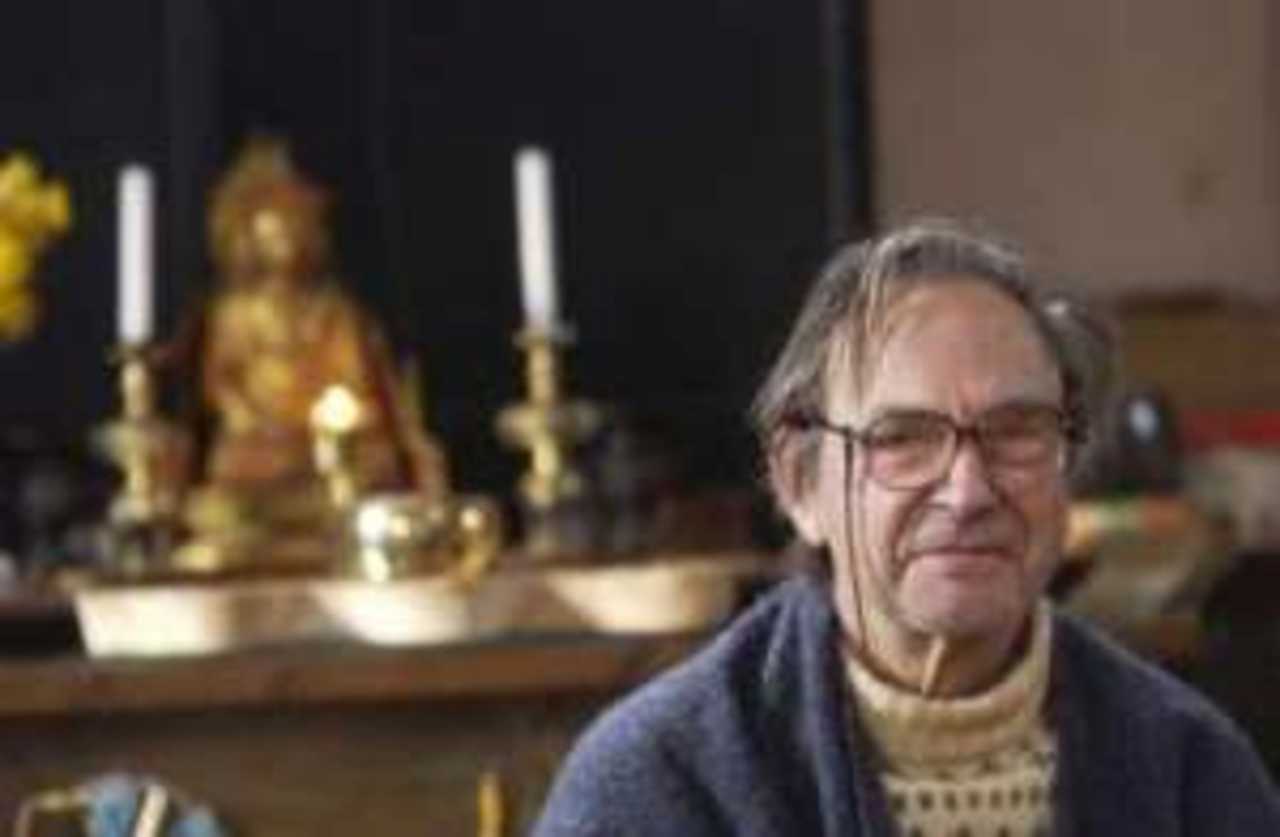Preceptual Truth

If you were asked, "What is the most important idea in Buddhism?" What would you say? I would have to answer 'Preceptual Truth'; so, what is 'Preceptual Truth'? It is an expression that I believe comes from Roshi Jiyu Kennet, the founder and first Abbess of Throssel Hole Abbey. As we know, our Chan Lay precepts are: Not to kill; Not to steal; Not to lie; Not to commit harmful sex; Not to become inebriated. Preceptual Truth means the holding of these precepts in faith, with understanding, and with contemplative investigation so that they form an integral part of one’s life practice.
Perhaps some of you may be surprised at this. Maybe you think that Enlightenment should be the most important idea in Buddhism. Certainly, this is the idea that has been most emphasised in Zen since Daisetz Suzuki first came West and played such a major role in bringing Zen to Western attention. Yet, it is not always mentioned that the uncovering of an enlightenment experience, like everything else, is subject to causes and conditions. There is nothing merely technical or automatic about it. No fixed plan can produce it. The causes and conditions need to be right if the selfish ego is to let go of its hold on the mind so that such silent freedom may arise.
The prime causes and conditions in this case involve the understanding of the precepts. Why is this? The answer is simple. Most religious systems have ethical injunctions that resemble the list of Chan precepts. Certainly in Christianity, we have the Ten Commandments. The fact must be that very early in human history it was realised that peoples who endlessly indulged in fighting, killing, stealing, deception, rape and inebriation were doomed to endless uproar – even when raiding tribes could for a time perhaps enjoy the fruits of their conquests. Only stabilised people with ethics that could control these evils could find peace and prosperity.
At our personal, individual level too it is easy to see that those of us who indulge in such activities cannot live happy lives, at most we will be incarcerated to save the general public from our misbehaviours, at least we will have an uneasy conscience. It is obvious that anyone with an uneasy conscience will be very unlikely to calm the mind to attain the clarity needed to even consider the possibility of enlightenment.
Living by Preceptual Truth provides the causes and conditions needed if a practitioner is to make progress in the Dharma. In Buddhism, the breaking of a precept is not a sin causing some God to wrathfully subject us to punishment or excommunication. Rather, in Buddhism such behaviour is considered a mistake. Mistakes have consequences but usually these can be corrected by subsequent actions that restore the mind to peace. The precepts are thus not commandments from outside but rather principles a wise person adopts to run his or her own life.
I often regret the negative wording of the Precepts. Indeed, Simon and I have spent some time trying to find positive statements to express the same points. It turns out that precepts have many metaphorical extensions. For example, by abusing a child one may kill its faith in itself and life, by deceiving someone one can set up mistrust of oneself that lasts a long time and may generalise among others, by drinking too much at a party one may cause an accident in which one’s best friend dies through one’s actions. You can think out many metaphors for these terms yourself.
One approach would be to replace the negative injunctions with positive ones such as the following:
Always enhance life
Always respect others and their possessions.
Always speak truth
Always share loving kindness and not just sex.
Sustain the balance of the mind.
In these ways, you can contemplate in greater detail what your own ethical principles may be. It is also important to remember that the five precepts are more detailed versions of the basic Great Precepts , Do no evil. Do no harm to others. Always do good. The precepts also appear as koans. Sometimes, for example, a lie may be compassionate or shooting a murderer may stop him or her killing even more people. In such cases, although some karmic retribution may arise, the fact of compassionate intent will lead to forgiveness.
Preceptual Truth is thus sometimes a real-life hua-tou of serious concern. To move forward in the Dharma, to find peace in meditative practice, there needs to be a firm ethical basis. Without it, there will be unease, anxiety, worry, self-concern; all of which make up an uneasy conscience. After a mistake, to rediscover innocence is crucial. There are many ways. Immaculacy may not always be possible in this difficult life but it can become an aim and a theme for investigation. We all know when we have made a mistake. The first action in practice must be to restore one’s self at ease. This is why Preceptual Truth is the first consideration in pursuing the Dharma.
Go to it! This is the first move to make on Taking Refuge.
John
Chuan deng Jing di.
- Publication date:
- Modified date:
- Categories: 2010 Teishos John Crook John Crook
-
 Western Chan Fellowship CIO
Western Chan Fellowship CIO - Link to this page
©Western Chan Fellowship CIO 1997-2026. May not be quoted for commercial purposes. Anyone wishing to quote for non-commercial purposes may seek permission from the WCF Secretary.
The articles on this website have been submitted by various authors. The views expressed do not necessarily represent the views of the Western Chan Fellowship.
Permalink: https://w-c-f.org/Q372-62
